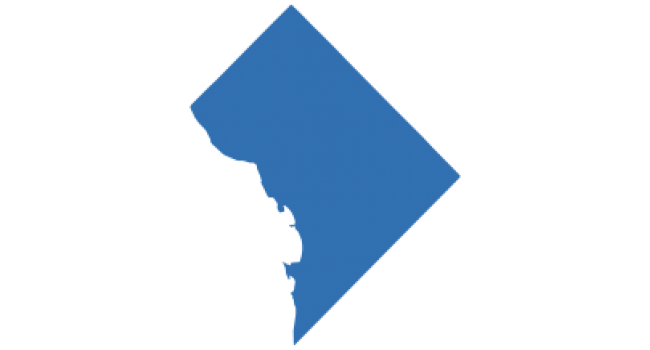Washington, D.C.: ELL Resources

Washington’s schools are home to more than 8,000 English language learners. In recent years, the most common five languages spoken by ELLs in Washington have been Spanish, Amharic, French, Chinese, and Russian.
The District of Columbia is a member of WIDA (World-Class Instructional Design and Assessment), joining in 2003. WIDA is a consortium of states dedicated to the design and implementation of high standards and equitable educational opportunities for English language learners which offers states programming for identifying and annually assessing the English language development of its English learners.
Note: For additional state-by-state data and information, see New America's English Learner Accountability Hub.
District ELL Resources
District of Columbia Public Schools
- DC ELL Website: ELLs Program and Support
- Multilingual Certifications: Seal of Biliteracy
Related resources
- WIDA: DC Contact Information
Regional Organizations
Note: Regulations change with time. If you see something that needs updating, please send an e-mail to Colorín Colorado. For more detailed information regarding ELL guidelines and policies at the state and federal levels, please see the following:
References
U.S. Department of Education. Our Nation’s English Learners. Most Common Non-English Languages Spoken by English Learners.






